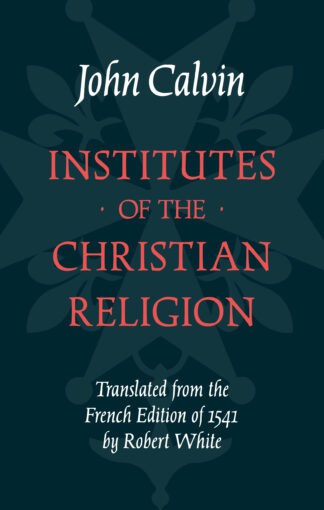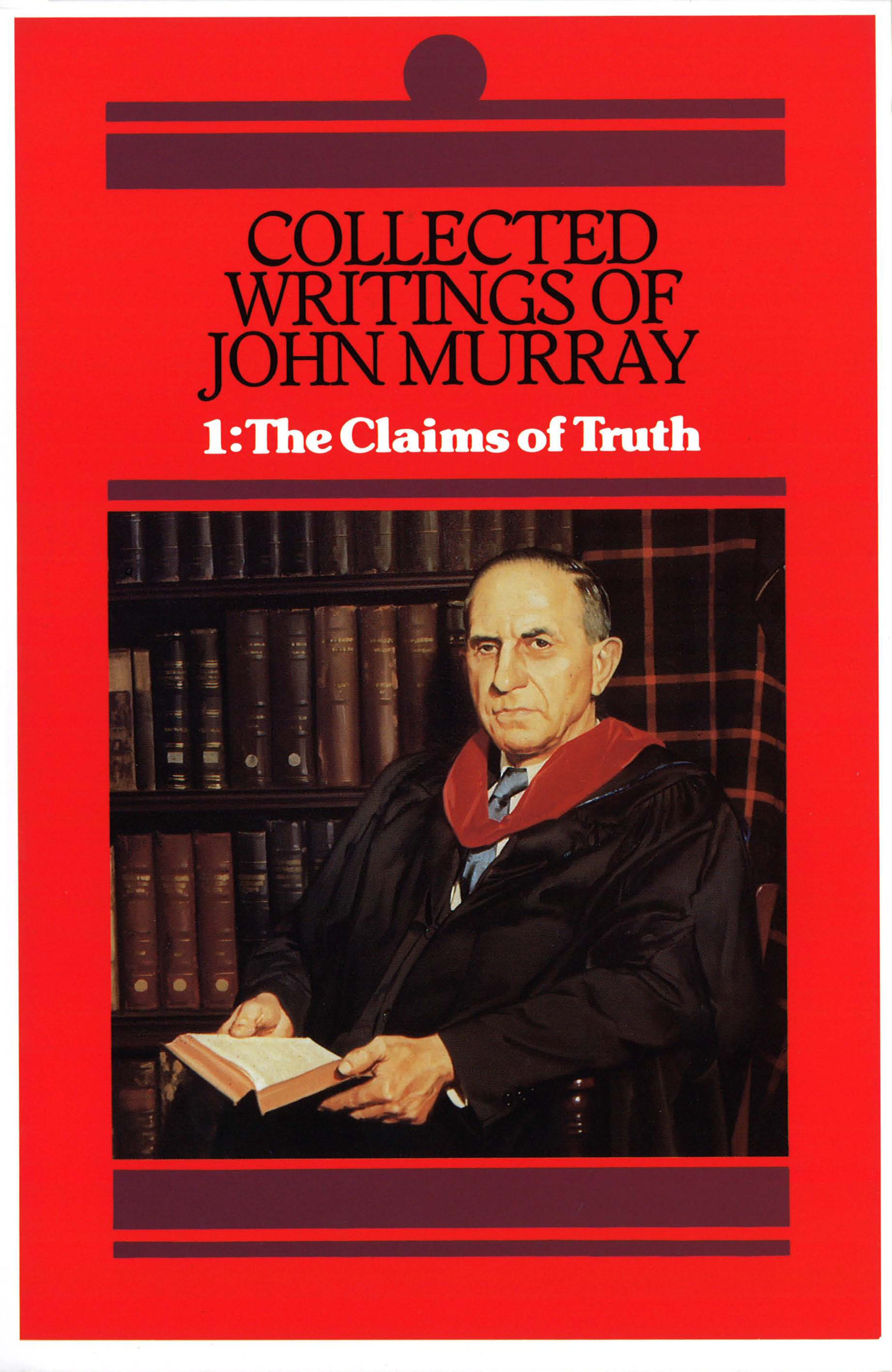Bringing Back the Law in Evangelism
As we consider the state of the church today there is much to discourage us. We think of the conformity to the spirit of the world, the lack of depth in Christian experience, the absence of heart religion, the paucity of the fear of God, the disregard of the Lord’s day, the lax attitude to worship and the absence of seriousness with regard to eternal issues. Some would seek to console us by saying that we are living in ‘a day of small things’ and that the influences of the Holy Spirit are largely withdrawn. But then we have to answer by pointing out that the church was in an even worse state prior to the Reformation. It was characterized by indifference, pride, laxity and worldliness but a change came that was radical in its ethical effects.
Preaching the law in the Reformers and the Puritans
While we acknowledge that the Reformation was pre-eminently a revival we have to inquire what instrument was used by the Holy Spirit at the time. It was undoubtedly the application of the Law of God, the Ten Commandments to the existing situation. For the Reformers the starting point in evangelism was the nominal ‘Christians’ who lived their lives in utter complacency with regard to their sins. In their judgment the first thing necessary in preaching was that the holiness and righteousness of God should be brought home to the conscience of the sinner. And this could only be done by preaching the Ten Commandments. There is truth in E F Kevan’s claim, in his classic work The Grace of Law, that ‘the Puritans stemmed the tide of moral indifference in their day by the use of the Ten Commandments’ (London 1964, reprint, Baker, 1976, p 13).
It was the conversion of Martin Luther that helped to ignite the Reformation. He faced the question: ‘How could a pigmy stand before the divine Majesty; how could a transgressor confront divine holiness?’ His conscience was awakened. He became conscious of sinful man standing coram deo (in the presence of God). God’s holiness was ever obtruding itself on his conscience. He relates his disquiet: ‘I raged with a savage and confounded conscience; yet I knocked importunately at Paul in this place (Romans 1.17), with a parched and burning desire to know what he could mean’. He had been taught to think of the righteousness in that verse as God’s attribute of condemning sin. However, when the divine light broke into his soul he saw that Paul is referring to the righteousness revealed in the gospel by which God justifies sinners through faith. ‘At this,’ he says, ‘I felt myself straightway born afresh and to have entered through the open gates into paradise itself’.
The law was to play a prominent part in the teaching of the Reformers and later, the Puritans. Following in the same line as Luther, John Calvin could write: ‘By exhibiting the righteousness of God the law admonishes every one of his own unrighteousness, convicts and finally condemns him’. (Institutes II, vii, 61). However, Calvin greatly developed the teaching of Scripture on the law. For Calvin, the law reveals God’s righteous character, restrains evil in society and functions as a rule of life to guide Christian believers in the way of life that is pleasing to God. The Catechisms and Confessions of Faith that poured forth from the Reformers gave a central place to the Ten Commandments and they became very prominent in Puritan preaching and writing. Place was given to ‘a law work’ before a gospel work.
The law before the gospel in the Scriptures
What then is our justification for preaching the law? To many people today the moral law is regarded as an arbitrary rule which is imposed on the creature. But we have to realise that, as Thomas Manton says, ‘the original draft is in God himself.’ We must begin with the nature and character of God. ‘God is light and in him is no darkness at all’ (1 John 1.5). He is the only Holy One. He created our first parents in His own image. What was implanted in man in creation was nothing less or other than the moral law of the Creator. The law is the transcript of God’s holy character. In the words of Anthony Burgess: ‘The moral law implanted in his heart, and obedience thereunto, was the greatest part of Adam’s happiness and holiness’. When man sees the character of God reflected in His law, he sees who God is, and what God requires of him.
When our first parents transgressed the law of God, the divine image in them was greatly defaced. A disruption came in their relationship with God. Man was justly condemned and his love for God and his law was replaced by enmity. God came to be seen as the just Judge. But in this condition man was still answerable to a holy God. Like Luther he is to be found standing coram deo. Because of the law originally written on the heart, the sinner possesses a God-given sense of right and wrong in his conscience. But that conscience is dead and hardened.
It is the arousing of the conscience by the law, in the hand of the Holy Spirit, that is destined to awaken the sinner. He hears the gospel but it has no relevance to him unless he knows his need. It is the ‘coming home’ of the law that awakens the sense of need, as Paul found: ‘I had not known sin but by the law (see Romans 7.7ff). Why preach the law? The answer of Scripture is that God’s condemnation and curse lies at the very centre of the gospel. If sinners do not know that God is angry with them or why they merit His wrath, they cannot apprehend the meaning of Christ taking their place at Calvary. Only the law can create a sense of need. Only the law can destroy self-righteous complacency. The conviction by the law shuts the awakened sinner to hope in mercy alone. The law exposes the gospel hypocrite, produces a spirit of bondage and is intended to drive sinners to Christ.
Luther wrote: ‘Whoever knows how to distinguish between the law and the gospel, let him thank God and know that he is a theologian’. (Commentary on Galatians, reprint 1953 , p122).. As Samuel Bolton put it: ‘The law sends us to the gospel that we may be justified, and the gospel sends us to the law again to enquire what is our duty as those who are justified…the law sends us to the gospel for our justification; the gospel sends us to the law to frame our way of life.’ (True Bounds of Christian Freedom, reprint 1965, p 712). The sharp needle of the law makes way for the scarlet thread of the gospel. Sinful man cannot attain to the keeping of the Ten Commandments but he discovers that the law has been fulfilled in the obedience of the God Man on his behalf. In the work of regeneration by the Holy Spirit the law is written on his heart and he has the desire to be conformed to the image of Christ. He rejoices in the law and would agree with the Puritans who ‘believed that the highest spirituality was to be seen in a life that rejoices to be commanded’ (E F Kevan, The Grace of Law, p 249).
A law work evident in Christian experience
The Reformers and Puritans believed that there was a relationship between the nature of evangelism and the quality of the subsequent Christian life. At the first Banner of Truth Ministers’ Conference in 1962, the Rev Kenneth MacRae spoke on the subject of ‘Preaching and the Danger of Compromise’.(The Banner of Truth, Issue 34, July 1964, p 12) He referred to the saying of an old minister in the Isle of Arran: ‘A twist in the birth will be with a man all his days’. Mr MacRae went on to say that although this is true physically there is also an application regarding spiritual birth. Christians may be permanently weakened by misguided teaching received at the time of their conversion. Some may be content to think that they are Christians when they are not. We can see the application of this by considering some of the characteristics of true conversion that are so sadly lacking today.
1. Life-long repentance and penitence
Having had a sight of the holiness of God reflected in the law, the Christian is one who is poor in spirit and who mourns (Matt 5.3-4). But he is the one who is truly blessed. He is pleasing to God (Psa 51.17) In one sense his heart was broken but now it is healed. John Newton said: My grand point in preaching is to break the hard heart, and to heal the broken one’. Philip Henry said ‘I will take my repentance to the gates of heaven’. At one of his weekly tea parties in Cambridge, somebody asked Charles Simeon: ‘What, Sir do you consider the principal work of regeneration? This was Simeon’s reply:
‘The very first and indispensable sign is self-loathing and abhorrence. Nothing short of this can be admitted as an evidence of a real change…I want to see more of this humble, contrite broken spirit amongst us. It is the very spirit that belongs to self-condemned sinners…This sitting in the dust is most pleasing to God. Give me to be with a broken-hearted Christian, and I prefer his society.’ (John Stott, Christ the Controversialist, Leicester 1970, p 131)
2. The Fear of God
The Reformers’ charge against the ministry that preceded them was that it did not bring men into the presence of the true God. Our age has lost its grip upon that transcendent Being who holds all men accountable to Himself and consequently we have lost our identity as image-bearers of the living God. By the fear of God, the Reformers understood reverence for God arising out of a consciousness of His majesty and glory. ‘The fear of God’, says Professor John Murray, ‘is the soul of godliness’. He goes on to say in that masterly chapter on the subject in Principles of Conduct: ‘If we know God, we must know him in the matchless glory of his transcendent majesty and the only appropriate posture for us is prostration before him in awe and reverence… To discount this emphasis and have any other is proof that the faith of the Bible is not ours’. (John Murray, Principles of Conduct, London 1957, pp 229-242).
3. Holiness of Life
Modern evangelism has pressed for sinners to be converted but it has failed to present the implications of a saving commitment to Christ. It has wrongly assumed that submission to the Lordship of Christ and holiness of life can be added later. The Reformers and Puritans taught that where there is no renunciation of the world and no denying of self, there is no faith in Christ and that a professing Christian who does not live righteously is no Christian at all. God’s command is: ‘Be ye holy; for I am holy’(I Pet 1.16). In regeneration we are conformed to God’s holy law. We cannot have justification without sanctification. Dr John Duncan presented it well: ‘That justification precedes sanctification is another of the ultraisms of modern Protestantism. I cannot receive that doctrine. Faith precedes justification, but regeneration causally precedes faith. It is therefore very important to remark initially that all flows from Christ and our union to him’ (W Knight, Colloquia Peripatetica, Edinburgh 1879, p 84).
A call for the recovery of law preaching
John Newton noted that most errors in the Christian life are rooted in erroneous thinking about the law of God: Ignorance of the nature and design of the law is at the bottom of most religious mistakes’ (Works of John Newton I, 3393). That erroneous teaching has permeated the professing church of today. We feel we are in a similar situation to that described by Dr John Duncan: ‘There is enough Gospel preaching to heal a world of sin-sick souls, but where is the preaching to make souls sin-sick?
In an address to the alumni at Westminster Theological Seminary in 1952 on ‘Some Necessary Emphases in Preaching’, Professor John Murray declared: ‘And what I observed as conspicuously minimal in the preaching of evangelical and even Reformed Churches is the proclamation of the demands and sanctions of the law of God. To put it bluntly, it is the lack of the enunciation with power, earnestness and passion of the demands and terrors of God’s law’. (Collected Writings I, p1434). It was concern over this lack that ultimately led to the first Banner of Truth Trust Ministers’ Conference in Leicester in 1962. (See Catch the Vision by J J Murray, 2007, p 141).
As we view the state of the church today we can but agree with the conviction expressed by Dr J Gresham Machen: ‘A new and more powerful proclamation of that law is perhaps the most pressing need of the hour, men would have little difficulty with the gospel if they had only learned the lesson of the law. So a low view of law always brings legalism in religion; a high view of law makes a man a seeker after grace. Pray God that the high view may again prevail. (What is Faith? 1925, p 1415).
Notes

price From: £13.00Description
As we consider the state of the church today there is much to discourage us. We think of the conformity to the spirit of the world, the lack of depth in Christian experience, the absence of heart religion, the paucity of the fear of God, the disregard of the Lord’s day, the lax attitude to […]

price From: £40.00Description
As we consider the state of the church today there is much to discourage us. We think of the conformity to the spirit of the world, the lack of depth in Christian experience, the absence of heart religion, the paucity of the fear of God, the disregard of the Lord’s day, the lax attitude to […]

Collected Writings of John Murray
Volume 1: The Claims of Truth
price £19.00Description
As we consider the state of the church today there is much to discourage us. We think of the conformity to the spirit of the world, the lack of depth in Christian experience, the absence of heart religion, the paucity of the fear of God, the disregard of the Lord’s day, the lax attitude to […]
Latest Articles
On the Trail of the Covenanters 12 February 2026
The first two episodes of The Covenanter Story are now available. In an article that first appeared in the February edition of the Banner magazine, Joshua Kellard relates why the witness of the Scottish Covenanters is worthy of the earnest attention of evangelical Christians today. In late November of last year, on the hills above […]
A Martyr’s Last Letter to His Wife 11 February 2026
In the first video of The Covenanter Story, which releases tomorrow, we tell the story of James Guthrie, the first great martyr of the Covenant. On June 1, the day he was executed for high treason, he coursed the following farewell letter to his wife: “My heart,— Being within a few hours to lay down […]
